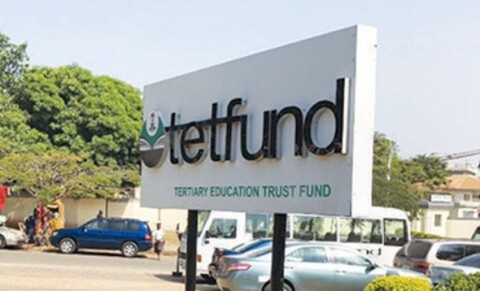The Executive Secretary of the Tertiary Education Trust Fund (TETFUND), Arc. Sonny Echono, has emphasized the need for Nigerian universities to attain full autonomy to enhance operational efficiency and academic excellence.
Speaking on Saturday in Oye-Ekiti, Ekiti State, during the ninth convocation lecture of the Federal University Oye-Ekiti (FUOYE), Echono highlighted that granting universities autonomy would empower them to generate innovative ideas, improve the quality of education, and contribute significantly to national development. His lecture was titled “University Autonomy and the Challenges of Quality Tertiary Education in Nigeria.”
Echono, a former Permanent Secretary in the Federal Civil Service, stressed that universities should be granted financial, administrative, and academic independence to address the nation’s challenges effectively and compete globally. He pointed out that excessive political and bureaucratic control has negatively impacted the university system, arguing that institutions should have the freedom to determine their operational costs and explore commercial opportunities to achieve self-sufficiency.
“Autonomy allows universities to develop their infrastructure through collaborations with industries, alumni networks, and research institutions,” he stated. “It also fosters global partnerships, enabling universities to share ideas, improve teaching and learning strategies, offer joint degree programs, facilitate cultural exchanges, and enhance research collaborations across borders.”
Echono also praised the University Autonomy Act of 2007, describing it as a crucial legislation that strengthens institutional independence and balance within the university system. However, he noted that the Act currently applies only to federal universities and called on stakeholders to advocate for its extension to state-owned institutions.
“Unfortunately, the Act is limited to Federal Universities. Stakeholders must work towards persuading state governments to adopt similar provisions in their laws to ensure uniformity in the system,” he added.
He further identified inadequate funding as the most pressing challenge facing university education in Nigeria. According to him, financial constraints have forced many academic and non-academic staff to work under difficult conditions, hindering the pursuit of academic excellence.
Echono urged collective efforts to address these issues and ensure that Nigerian universities achieve the autonomy necessary for sustainable growth and global competitiveness.





